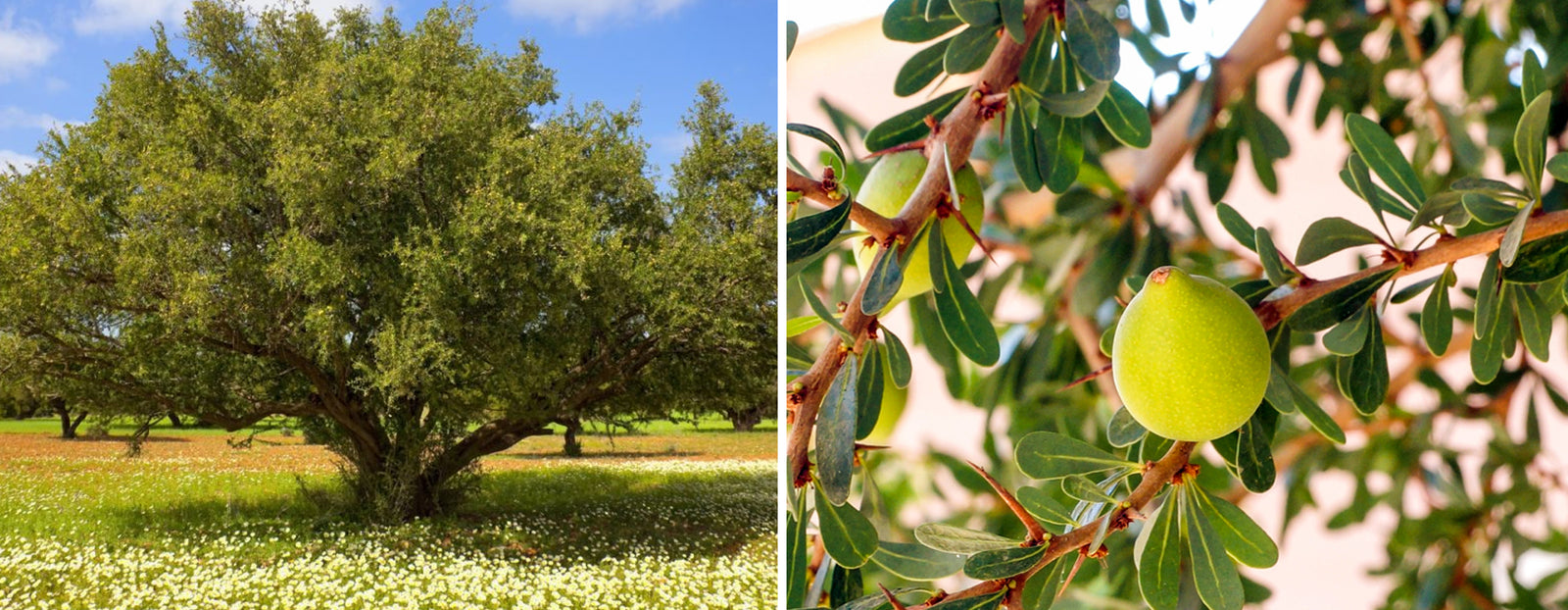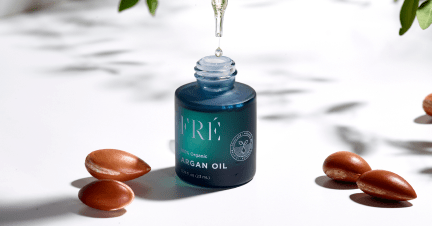Shop All
ABOUT FRE
Meet Argania Active Complex™ (AAC). Our unique patented formula, designed for your active life.
40 Hectares of Argan Trees Planted!
by Lorisa Hasenbush July 03, 2023

Since FRÉ began in 2016, we have partnered with High Atlas Foundation (HAF) to plant argan trees in Morocco. The objective of planting argan trees is to improve Morocco’s forest ecosystem and empower the women who harvest argan. In order for our efforts to be successful, HAF works with the local communities, so the argan trees will survive the delicate first five years of life and will be a source of environmental preservation and financial income for many years to come. We are proud to have planted over 63,000 argan trees in Morocco to date.
On December 28, 2022, FRÉ and HAF began an argan tree and caper bush planting project that had been in the planning stages during the previous months. HAF and locals from Khat Azakane Commune in the Safi province planted 6300 argan trees and 13,000 caper bushes over 40 hectares of land.
We planted 6300 argan trees and 13,000 caper bushes over 40 hectares of land.
The importance of the argan tree
Argan trees represent growth in many ways for the people of the Safi province. First, the argan tree has economic significance; one tree can produce between 220 and 660 pounds of argan nuts during a fruitful year, which the locals can process to make argan oil. Second, the trees have farming importance, as argan trees are a source of nutrition for the local cattle. Third, argan trees play a major role in strengthening the local ecosystem. The trees help preserve the soil and enhance vegetation. In addition, mature, argan trees are resistant to the effects of drought and climate change, which are big concerns in Morocco.
Employment opportunities for women
Currently, twelve members of the local community are employed maintaining the argan and caper project. They trace, excavate, plant, and water the trees and bushes. They work six days a week to make sure the plants thrive. Once the caper bushes reach maturity in a year, the project will create about 320 new jobs, as each hectare will need 8 workers to tend to it. It is planned that 120 of the new workers will be women.
The project will create about 320 new jobs, and it is planned that 120 of the new workers will be women.
HAF is working to establish ten women’s cooperatives that will process the argan nuts to produce argan oil. The women in these cooperatives will both make and sell the argan oil. HAF will help these cooperatives organize local offices, which will increase their effectiveness and efficiency. In five years, when the argan trees reach maturity and bear fruit, it is estimated that another 120 rural women will be employed by these ten women's cooperatives.
Significance financial income for women
Each woman who is employed by this project, either tending the land or processing the argan oil directly benefits by having financial independence. If she is divorced or widowed, she can take care of herself and her family’s financial needs. If she is married, she can contribute her earnings alongside her husband’s income to improve living conditions for the entire family.
In addition, the younger generation benefits from local women being employed. If a mother can provide for her family, her children can go to school and pursue an education. The children do not have to drop out of school and look for work in order to help support their families.
If a mother can provide for her family, her children can go to school and pursue an education.
FRÉ community makes an impact
Thanks to the FRÉ community, which supports our argan planting projects with the One Set, One Tree program, we continue to plant trees in Morocco. These trees have a multilayered impact that affect both the local ecosystem and the local economy. We are proud to work on these projects and positively influence communities in Morocco.
Leave a comment
Comments will be approved before showing up.






